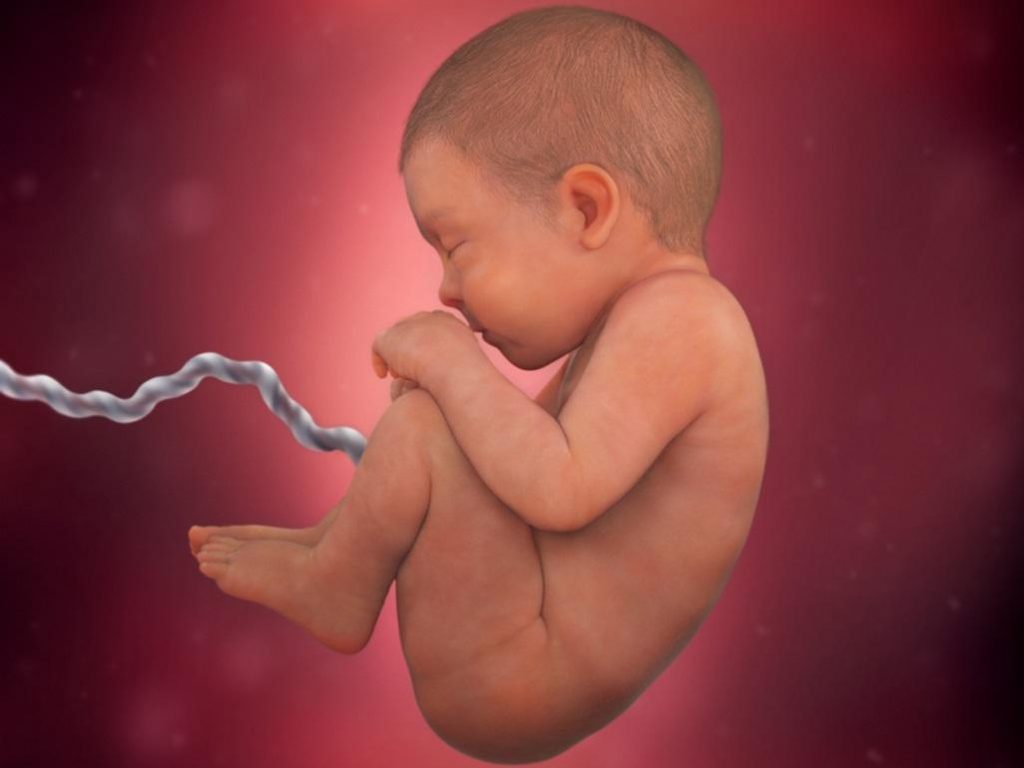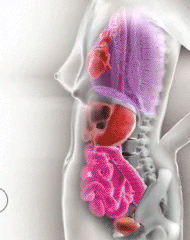Periods. As much as women dread bleeding ‘down there’ for around five to seven days which, more often than not comes with an uncontrollable emotional blizzard, we do love getting that monthly confirmation that we’re clear from any unplanned pregnancies. It’s not that we don’t love kids — we do, but — it certainly isn’t going to be easy if you’re not mentally, monetary and physically prepared.
But unfortunately, cases of cryptic pregnancy (a.k.a pregnancy denial) whereby women have no idea that they’re expecting, are not particularly rare. In fact, they are estimated to occur about one in every 2,500 cases, which is quite alarming. Here are several things that point toward a possible pregnancy:

1. False pregnancy test result
A home pregnancy test, which uses Human chorionic gonadotropin (hCG) to determine whether a woman is pregnant or not, is usually the first thing a woman who suspects she’s expecting will grab from the pharmacy counter. However, it can give false readings if used improperly, read wrongly or when a foetus is putting out a super low dose of the stuff (usually in the early days of pregnancy). Hence, be sure to use more than one test for reassurance!
2. Irregular menstrual cycle
Some women have periods that aren’t regular to begin with, so missing their menstrual cycle for months or randomly experiencing spotting doesn’t necessarily seem like a cause for alarm. Consequently, these women may still take oral contraceptives to prevent pregnancies when the truth of the matter is, they are already carrying a child.

3. Mistaking spotting for light periods
In the first trimester, bleeding during pregnancy is common and it is usually not dangerous. This occurrence is called spotting, which can last from a few hours to a few days, and sometimes it even ends up being mistaken for light periods. Remember, it’s technically not possible to menstruate during pregnancy, thus, it would be wise for you to get yourself checked regularly.
4. Being told you’re infertile
Those who have been diagnosed with Polycystic Ovary Disorder (PCOS) or hormonal imbalance may have been told that it will be difficult for them to get pregnant. Following that, assuming that you’re infertile may lead you to diminish the possibility of pregnancy altogether — causing you to disregard any early pregnancy symptoms when in reality, your belly is already starting to show.

5. Stress
Getting stressed out can negatively affect anybody’s health and attitude, even more so if you’re an expecting mother-to-be who is unaware of the pregnancy. In some cases, stress can influence denial of conception or distract you from the realities of pregnancy. It can also make you skip menstrual cycles and because of that, some may falsely attribute the period irregularity to stress and other life factors.
6. No symptoms of pregnancy
The absence of vital pregnancy signs which include morning sickness, fatigue, tender breasts, food cravings, back and abdominal pain, headaches, soreness as well as weight gain will make detecting it rather difficult. Every pregnant women would experience at least some light symptoms, but if you’re unaware of it, you might confuse these sensations with indigestion, stress or food poisoning.

7. Mental health instability
A number of women who are unaware of their pregnancies suffer from mental health issues including schizophrenia, severe depression and multiple personality disorders — which may cloud a mother’s ability to detect her own pregnancy. If you are prone to any mental illness, it’s always best to keep it in check.
8. Too much faith in contraceptives
Sure, birth control pills, condoms and other contraceptives can be extremely effective in preventing unplanned pregnancies, but they are far from perfect. Condoms can break and using contraceptives incorrectly such as taking the pill at different times of the day or skipping pill days may increase the likelihood of getting pregnant. Nothing is a 100%, so be aware!

9. Inactive baby
Not all babies kick, squirm or communicate with the mother during the early days. Some babies are more inactive than others, which could be due to the child’s position in the womb that makes any possible movement nearly impossible to detect. This can also shape a woman’s perception of her pregnancy, and most will simply dismiss it as indigestion.
10. Body weight stays the same
An expecting woman will usually increase in size to account for the baby’s weight and other fluids accompanying the pregnancy. However, that is not the case if the baby produce low levels of hCG hormones (how the foetus communicates its needs), as the mother probably won’t feel much hungrier or more nauseous than she normally would. Unfortunately, this is also why some babies are underweight.
In view of this, it’s important for us to note that pregnancy denial or cryptic pregnancy may happen to anyone, so be sure to practice safe sex if you’re not ready to be parents. Just last night, we heard our neighbour talking in the elevator about being unaware of her pregnancy and sadly, she lost the baby while working out. 🙁











